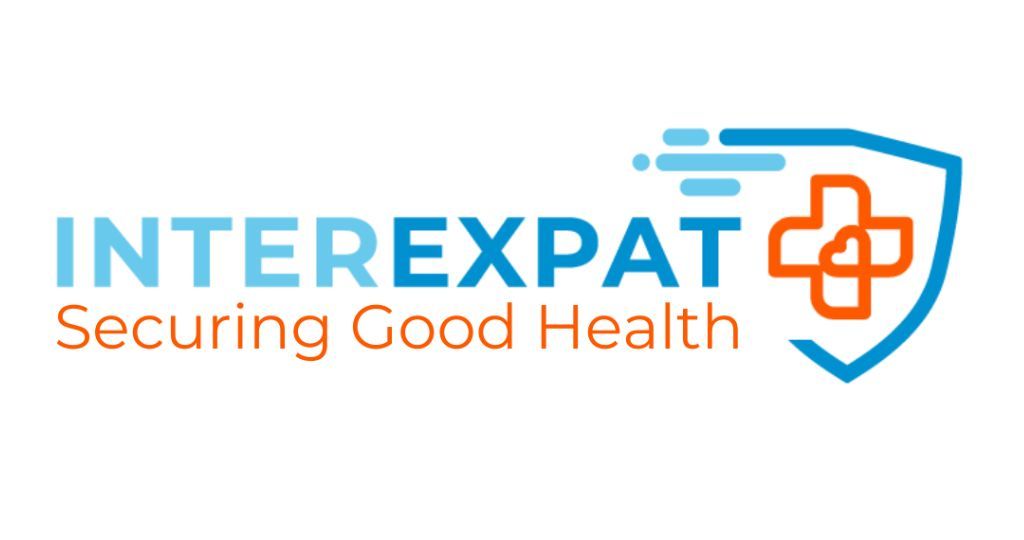
About us
Why Health Insurance in Singapore
Singapore’s healthcare system is renowned globally for its efficiency, quality, and innovation. While citizens and permanent residents benefit from government subsidies and national schemes like MediShield Life, expatriates are not eligible for these programs. This makes private health insurance essential for expats living in Singapore, especially for hospital stays, specialist consultations, and chronic care.
Medical care is excellent—but it comes at a price. A short hospital stay or surgery can cost thousands of Singapore dollars. Without proper coverage, even routine treatment can strain your budget.
The Healthcare System in Singapore: Public vs Private
Singapore operates a dual healthcare system:
-
Public Hospitals: Government-run, high-quality care with tiered pricing. Expats pay full rates.
-
Private Clinics and Hospitals: Shorter wait times, more flexibility, and premium service—but also more expensive.
Most expats choose private healthcare providers for their speed and convenience. This makes comprehensive private insurance coverage a necessity, particularly for families, professionals, and retirees.
Costs can include:
-
General practitioner visit: SGD 60–120
-
Specialist consultation: SGD 150–300
-
Private hospital stay (1 day): SGD 1,000–3,000
-
Maternity package: SGD 8,000–15,000+
What Your Health Insurance Plan Should Cover
At Interexpat, we help you choose a policy that matches your needs. Key coverage areas include:
-
Inpatient and Outpatient Care: Hospitalization, day surgery, and medical consultations.
-
Emergency Evacuation: Especially important for regional travel or severe emergencies.
-
Maternity and Newborn Care: A must for young families.
-
Mental Health and Wellness: Counseling and psychiatric support are increasingly included.
-
Chronic and Pre-existing Conditions: Coverage can be customized or loaded.
-
Dental and Optical: Often offered as add-ons or in premium plans.
We work with top insurers like April International, Now Health, Allianz, and Cigna to ensure a wide range of solutions tailored for your health and lifestyle in Singapore.
Why Choose Interexpat?
Navigating Singapore’s healthcare system and insurance market can be overwhelming. Interexpat simplifies the process by offering:
-
Expert Advice: Independent guidance on plan selection and insurers.
-
Tailored Plans: Options for singles, couples, families, and retirees.
-
Multilingual Support: French- and English-speaking advisors.
-
Seamless Onboarding: We take care of the paperwork.
-
Lifetime Service: Ongoing help with claims, renewals, and plan changes.
-
We understand the expat journey—because we live it too.

Health Insurance FAQ Articles
for Pass Holders in Singapore
Yes, you can buy short-term international health insurance even without an Employment Pass. These plans are designed for trainees, students, and family members who may only stay in Singapore for a limited period. When considering short-term insurance, there are a few important points to keep in mind:
-
Do you need coverage in your home country as well as in Singapore?
-
Are you already in Singapore, and will there be a waiting period before coverage starts?
-
What is the extent of benefits – does the plan cover only emergencies, or also outpatient visits and routine care?
-
Are you in between jobs and if so, what is the next policy from your future employer?
-
Will you remain abroad in the future, requiring ongoing international coverage?
These factors will guide which short-term plan best suits your needs.
-
Travel insurance and health insurance are not the same. Travel policies are typically designed for short trips and cover only emergencies such as accidents or sudden illness. They rarely cover ongoing medical care, routine check-ups, or pre-existing conditions. In Singapore, medical costs are high, and without comprehensive coverage, you could face significant expenses. A proper health insurance plan ensures that you are protected for both emergencies and everyday healthcare needs, including hospitalisation, outpatient visits, and in some cases dental or maternity care. For anyone staying longer than a few weeks, it is strongly recommended to take a dedicated health policy rather than relying solely on travel insurance. This ensures continuity of care during your stay.
Yes, even if your pass is valid for only a few months, you can still buy health insurance in Singapore. Many insurers provide flexible international plans that cover stays as short as 3 months. These policies can often be extended if your stay is prolonged, or converted into long-term coverage if you move to an Employment Pass or other visa. Short-term insurance typically protects against hospitalisation and emergency care, while longer policies may include outpatient consultations, preventive care, and dental. It’s important to check if the plan has waiting periods for certain treatments, especially if you are already in Singapore. Having the right short-term policy ensures you’re protected against high medical costs during your limited stay.
Yes, Training Employment Pass holders can purchase health insurance in Singapore. Since these passes are valid for a limited period, it is important to look at short-term or international health insurance policies that fit your timeline. Employers may provide limited workplace coverage, but it usually does not include private hospital care or outpatient consultations. With a private plan, you can access better facilities and be covered for both emergencies and day-to-day healthcare. The flexibility of international plans also means you can continue coverage if you later switch to an Employment Pass. This gives peace of mind and ensures you are not left uninsured during your training period in Singapore, where medical costs are high.
Yes, Work Holiday Pass holders can apply for private health insurance while in Singapore. These passes are short-term, so you will need flexible coverage that matches the duration of your stay. International health insurers offer plans that cover hospitalisation, emergency treatment, and often outpatient care. This is important because even young and healthy individuals may face unexpected medical costs. Many insurers also allow you to extend your policy or upgrade it if you later move onto an Employment Pass. Having a plan in place ensures you are covered in Singapore’s private healthcare system, which is highly efficient but expensive without insurance. This is especially important if you do not have employer-sponsored benefits during your Work Holiday stay.
Yes, Training Work Permit holders should consider separate health insurance. Employers sometime provide basic medical coverage, but this is often limited and may not cover private hospital care or outpatient visits. A private plan ensures you are fully protected for emergencies, hospitalisation, and ongoing care. Coverage can be arranged for the short training period, often up to 6 months. It is also important to confirm whether your plan includes coverage in your home country or region, in case you need treatment outside Singapore. By taking out a personal policy, you gain access to better medical facilities and avoid high out-of-pocket costs in Singapore’s healthcare system.
Yes, Dependant’s Pass holders are eligible for individual or family health insurance in Singapore. While many employers provide coverage for the Employment Pass holder, spouses and children are often excluded or only partially covered. Purchasing a separate policy ensures full protection. Benefits can include hospitalisation, outpatient visits, maternity care, and children’s health coverage. Importantly, having your own policy protects you if the primary pass holder loses their job, as dependent benefits linked to employer insurance would end immediately. A personal health plan provides continuity and flexibility, including options to extend coverage if you later change your residency status. For families, this ensures peace of mind and long-term stability in Singapore’s private healthcare system.
Yes, Long-Term Visit Pass (LTVP) holders can buy comprehensive health insurance in Singapore. Many insurers provide policies covering hospitalisation, outpatient visits, and in some cases dental or maternity. As LTVP holders are not always eligible for employer-sponsored coverage, a personal policy is often the best choice. Some insurers may request proof of residence or a minimum length of stay in Singapore, but generally, LTVP holders face no major restrictions. Having your own health plan ensures you are not dependent on the Employment Pass holder’s benefits, and provides flexibility if your visa status changes. This is especially important for parents or dependants who want long-term security in Singapore’s private healthcare system.
Yes, if you hold a Letter of Consent (LOC) or Pre-approved LOC and are employed in Singapore, you can be included in your employer’s group health insurance scheme. However, not all companies provide extensive coverage, and the benefits can be limited. If you are self-employed under an LOC, you will not have employer-sponsored coverage, so it is essential to purchase an individual policy. These plans can cover hospitalisation, outpatient visits, and family members. Having your own plan also ensures continuity if your LOC status changes. For peace of mind, many LOC holders choose a comprehensive private plan that complements or replaces basic employer-provided benefits.
Most employers in Singapore provide basic medical coverage for Employment Pass holders, but the benefits are often limited. Our latest survey revealed that more than 70% of employer-sponsored health insurance plans provide inadequate coverage. Typically, coverage may include simple outpatient consultations and some hospitalisation, but it rarely covers private hospital stays, maternity, or long-term treatments. As healthcare costs in Singapore can be very high, many EP holders choose to supplement their company-provided benefits with individual international health insurance. This allows them to access a wider network of private hospitals, specialists, and additional services such as dental, vision, or mental health support. Individual plans are also portable, so if you change jobs or employers, your coverage remains intact. This independence provides continuity of care and better long-term protection for you and your family.
Yes, if you have your own individual or international health insurance plan, it is portable and not tied to your employer. This means you can continue your coverage even if you change jobs, take a career break, or switch to a different pass type. Employer-provided group insurance will end when you leave your company, leaving you without coverage during the transition. With a personal policy, you ensure continuity of care, especially for ongoing treatments or pre-existing conditions. This is particularly important in Singapore, where medical costs are high. Having a personal plan gives you flexibility and peace of mind, regardless of employment changes.
Yes, EntrePass holders must arrange their own health insurance, as they are not covered by an employer. Entrepreneurs in Singapore should secure comprehensive protection for themselves and their families, including hospitalisation, outpatient, and possibly maternity or dental coverage. Having a proper plan also makes your EntrePass business more attractive to talent, as you may choose to provide medical coverage for staff in the future. Importantly, a personal international plan ensures continuity if your business changes or you relocate. With Singapore’s high healthcare costs, it is essential for EntrePass holders to invest in a policy that guarantees access to quality care and financial protection.
Personalised Employment Pass (PEP) holders have more flexibility in their work arrangements, but this also means their health insurance may not be tied to an employer. Some companies still provide medical benefits to PEP holders, but it is common to arrange a personal international health policy. These policies ensure full access to Singapore’s private healthcare system and offer benefits such as maternity, dental, or worldwide coverage. Because the PEP is designed for high earners and senior professionals, insurers generally welcome these clients and offer tailored plans. Having your own policy also means you are not at risk of losing coverage if you switch employers or take career breaks.
No, Overseas Networks & Expertise Pass (ONE Pass) holders are not automatically covered by employer insurance. Since the pass is designed for top professionals and offers flexibility to work with multiple employers, it is essential to secure a personal health insurance plan. Many ONE Pass holders choose international policies that provide coverage not only in Singapore but also worldwide. This is particularly useful for frequent travelers or those who may relocate in the future. Coverage can include hospitalisation, outpatient, maternity, and specialist care. With Singapore’s high healthcare costs, a comprehensive policy ensures financial protection and peace of mind while maintaining the freedom that the ONE Pass offers.















